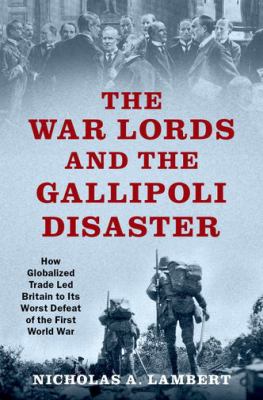
Book
|
The war lords and the Gallipoli disaster : how globalized trade led Britain to its worst defeat of the First World War
-- How globalized trade led Britain to its worst defeat of the First World War
Copies
4 Total copies, 4 Copies are in,
0 Copies are out.
Title
The war lords and the Gallipoli disaster : how globalized trade led Britain to its worst defeat of the First World War -- How globalized trade led Britain to its worst defeat of the First World War
Call No
D568.3 .L36 2021
Authors
Subjects
Great Britain. Dardanelles Commission.
Great Britain. Dardanelles Commission. fast (OCoLC)fst00658892
World War, 1914-1918--Campaigns--Turkey--Gallipoli Peninsula.
World War, 1914-1918--Economic aspects--Great Britain.
World War, 1914-1918--Food supply--Great Britain.
Wheat trade--Great Britain.
Wheat trade--Russia.
Economics.
Food supply.
Military campaigns.
Wheat trade.
Great Britain.
Russia.
Turkey--Gallipoli Peninsula.
Great Britain. Dardanelles Commission. fast (OCoLC)fst00658892
World War, 1914-1918--Campaigns--Turkey--Gallipoli Peninsula.
World War, 1914-1918--Economic aspects--Great Britain.
World War, 1914-1918--Food supply--Great Britain.
Wheat trade--Great Britain.
Wheat trade--Russia.
Economics.
Food supply.
Military campaigns.
Wheat trade.
Great Britain.
Russia.
Turkey--Gallipoli Peninsula.
Language
English
Published
New York, NY : Oxford University Press, [2021].
Publication Desc
xvii, 337 pages ;
ISBN
9780197545201 (hardcover)
LCCN
2020041222
Target Audience
Adult
Dimensions
25 cm.








